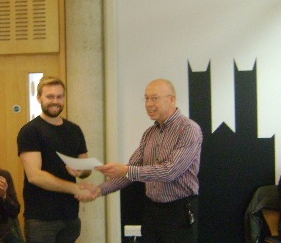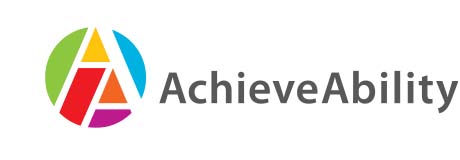AchieveAbility REFUND Programme
The AchieveAbility REFUND Programme 2017
Funded by Comic Relief
Who:
Adults struggling with addiction, those seeking recovery from addiction, those who have found themselves homeless through addiction; in short those who find themselves on an endless treadmill of addiction, recovery , relapse and potential homelessness due to undiagnosed neurodiverse issues and lack of support.
Why:
As there has been an increasing recognition that the clients we work with have many of the issues outlined above. This proposed project has been designed to meet the needs of this hidden group to advance recovery and to facilitate a more positive life experience through greater opportunity for training, education and within the workplace.
How:
Now funded by Comic Relief. The project aims to unlock the talents and potential of this hidden group. Many of these adults and young adults failed early on in their education due to these issues and have found themselves to be unemployed and have experienced problems obtaining or holding down employment and fitting in with the rest of society The project will initially be based in Camden and Islington in Central London. This is a diverse part of London with rapidly changing social and employment patterns where there is high homelessness and substance misuse.
What:
The programme delivered 4 awareness sessions. Advocates training, Taster workshops for clients and a full course to provide skills for education , training and employment.
Context:
Disability Today International Perspectives’ published in 2015 showed that people with dyslexia are over represented within the homeless population of the UK. The research states that dyslexia is a key factor for poverty and homelessness
It is recognised that many people are unable to reach their full potential because of addiction difficulties as a direct result of Neurodiverse conditions. There is a large amount of effective education and training available to support this group but a major problem is persuading them to seek help - often because of previous bad experiences and the resulting lack of confidence.
Based on recent data sourced from Journals, articles and research it has been shown that addiction for Neurodiverse people can lead to homelessness, mental health issues, poverty and therefore a spiral of negative and fundamentally damaging experiences; leading to a shortened life expectancy, lack of hope and continued addiction. AchieveAbility has already developed a series of short courses for those who are in poverty and Neurodiverse, outcomes have been an increasing recognition that the clients we work with have many of the issues outlined above. This programme has been designed to meet the needs of this hidden group to advance recovery and to facilitate a more positive life experience through greater opportunity for training, education and within the workplace.
Funded by Comic Relief
Who:
Adults struggling with addiction, those seeking recovery from addiction, those who have found themselves homeless through addiction; in short those who find themselves on an endless treadmill of addiction, recovery , relapse and potential homelessness due to undiagnosed neurodiverse issues and lack of support.
Why:
As there has been an increasing recognition that the clients we work with have many of the issues outlined above. This proposed project has been designed to meet the needs of this hidden group to advance recovery and to facilitate a more positive life experience through greater opportunity for training, education and within the workplace.
How:
Now funded by Comic Relief. The project aims to unlock the talents and potential of this hidden group. Many of these adults and young adults failed early on in their education due to these issues and have found themselves to be unemployed and have experienced problems obtaining or holding down employment and fitting in with the rest of society The project will initially be based in Camden and Islington in Central London. This is a diverse part of London with rapidly changing social and employment patterns where there is high homelessness and substance misuse.
What:
The programme delivered 4 awareness sessions. Advocates training, Taster workshops for clients and a full course to provide skills for education , training and employment.
Context:
Disability Today International Perspectives’ published in 2015 showed that people with dyslexia are over represented within the homeless population of the UK. The research states that dyslexia is a key factor for poverty and homelessness
It is recognised that many people are unable to reach their full potential because of addiction difficulties as a direct result of Neurodiverse conditions. There is a large amount of effective education and training available to support this group but a major problem is persuading them to seek help - often because of previous bad experiences and the resulting lack of confidence.
Based on recent data sourced from Journals, articles and research it has been shown that addiction for Neurodiverse people can lead to homelessness, mental health issues, poverty and therefore a spiral of negative and fundamentally damaging experiences; leading to a shortened life expectancy, lack of hope and continued addiction. AchieveAbility has already developed a series of short courses for those who are in poverty and Neurodiverse, outcomes have been an increasing recognition that the clients we work with have many of the issues outlined above. This programme has been designed to meet the needs of this hidden group to advance recovery and to facilitate a more positive life experience through greater opportunity for training, education and within the workplace.

REFUND Course in October 2017
Final presentation at the REFUND course at Camden City Learning Centre (CCLC)
James Carroll from SHP receives his end of course certificate from the Technology Manager at CCLC

July workshops for the REFUND course
to introduce the full course
to introduce the full course
